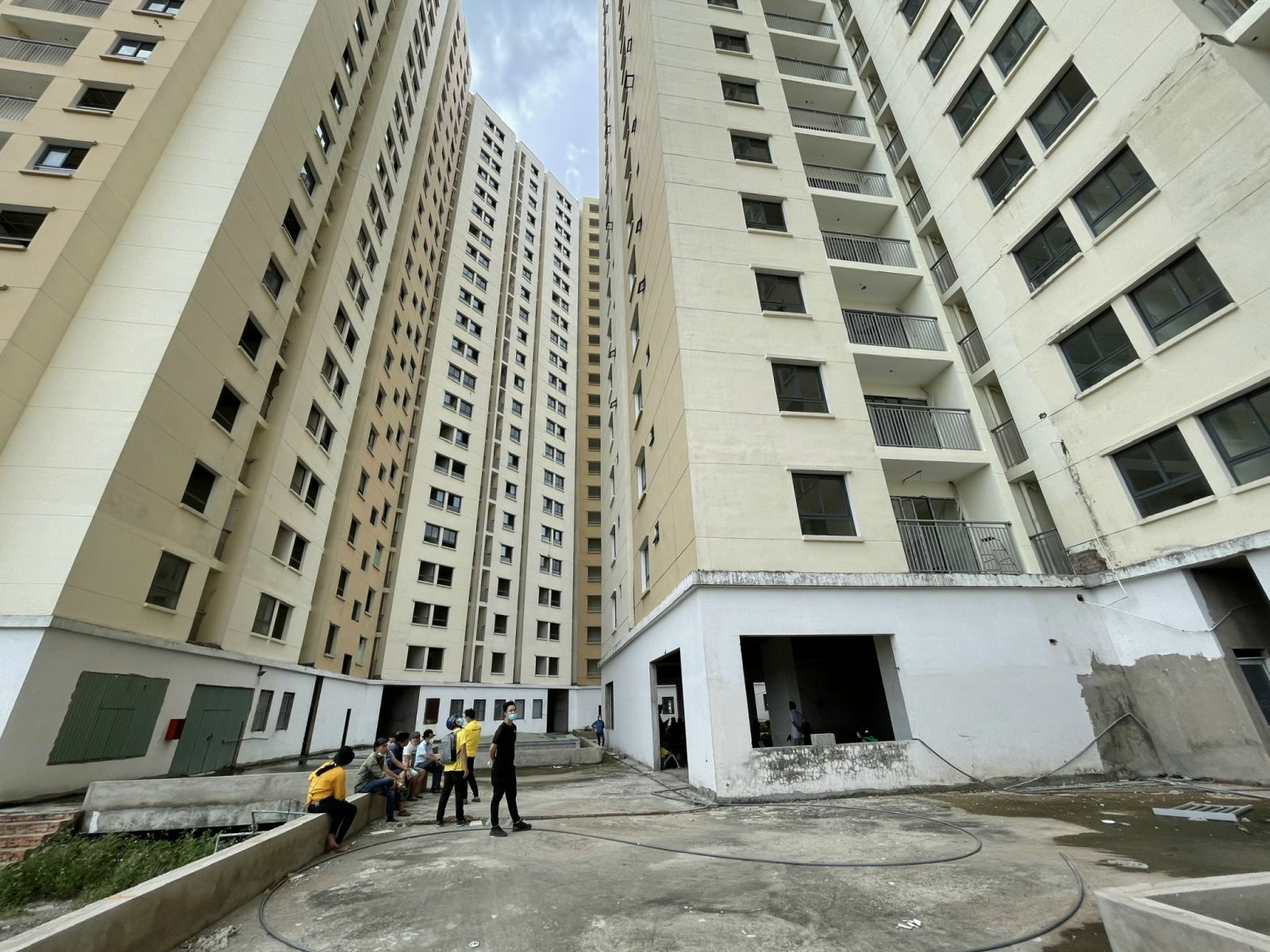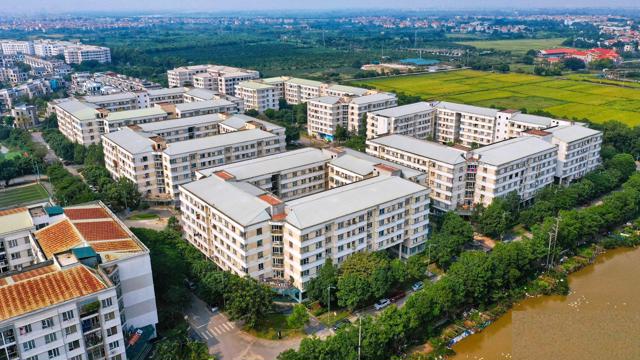Getting rid of "bottlenecks" in social housing
According to experts, early harmonization of the requirements of the Housing Law and Land Law (amended) on the project bidding process is required to establish competition and justice in the selection of social housing investors.
Mr. Hoang Hai, Director of the Department of Housing and Real Estate Market Management, Ministry of Construction, indicated in a recent discussion that the recently approved Housing Law has been changed to be more open and advantageous, benefiting both project developers and people in need of social housing.

The challenges of social housing will be resolved when the amended Housing Law takes effect
Solving many bottlenecks
Allocating 20% of social housing land funding, in particular, will be the responsibility of each locality's planning. This rule not only addresses a long-standing issue of land funding for social housing development for investors, but it also aids homebuyers by giving clear information about the population's demands, as well as future economic and social growth orientations. Local governments will have strategies in place to provide appropriate land funding.
Furthermore, developers are free from land use fees and land leasing fees for the whole project area, eliminating the need to go through land pricing or land use fee exemption processes. This also helps developers cut down on procedure time.
Meanwhile, many new regulations, according to Mr. Nguyen Van Dinh, Vice Chairman of the Vietnam Real Estate Brokers Association (VARs), "ease difficulties" for homebuyers and developers of social housing projects, with the hope of attracting more businesses to participate in social housing development and improving accessibility for low-income individuals to purchase homes.
According to experts, the time required to finish the procedures for social housing projects will be reduced by around one year. Furthermore, profit-sharing with the commercial sector of social housing will assist developers increase earnings, increasing investor appeal.
Furthermore, the modified Housing Law has made important and practical adjustments to "eliminate impediments" in the process of public access to, rental of, and purchase of social housing.
This is also expected to encourage the release of the 120 trillion VND loan package, bringing in capital for enterprises and bolstering the revival of the real estate market.
"The new Housing Law would reduce public issues by resolving the dilemma of 'having excess, having shortages," said Mr. Nguyen Van Dinh.
Early harmonization of regulations with the Land Law
According to experts, in order to ensure justice and competitiveness in the selection of investors, it is critical to prepare for the passing of the Land Law in the near future by aligning it with the two previously approved laws and implementing a bidding system to ensure fair and effective selection.

It is necessary to harmonize the regulations of the Housing Law and Land Law
Furthermore, the role of government policies in assisting investors and changing selling prices is critical. Pricing must be correct and adequate in order to pique the interest of investors.
"Previously, the selling prices were not calculated precisely and comprehensively, therefore it could not attract investors," Mr. Hoang Hai noted. Now, it is required to calculate precisely and completely, to create circumstances for investors to balance financial equations while still ensuring harmony with the aims, and to support state measures aimed at lowering prices for this target."
Furthermore, Mr. Le Xuan Nghia - Member of the National Financial-Monetary Policy Advisory Council - believes that transparent bidding methods are needed to encourage and attract investors to engage in development.
In terms of finance for social housing purchasers, Mr. Nghia feels that direct sponsorship through the budget, rather than through banks, is required to deliver the maximum benefits to low-income persons, or to use banks for sponsorship, as Singapore does.
In Singapore, for example, social housing purchasers borrow from banks at a 2.5% annual interest rate, with the government covering any extra interest. Mr. Nghia noted that addressing these barriers will contribute to an increase in the availability of social housing in the near future.








